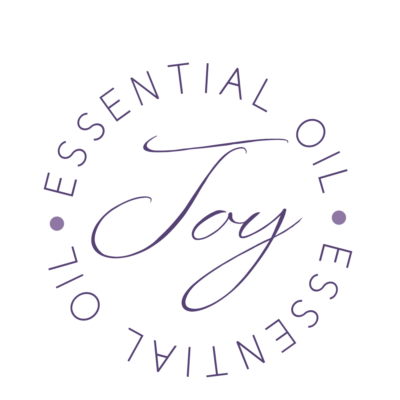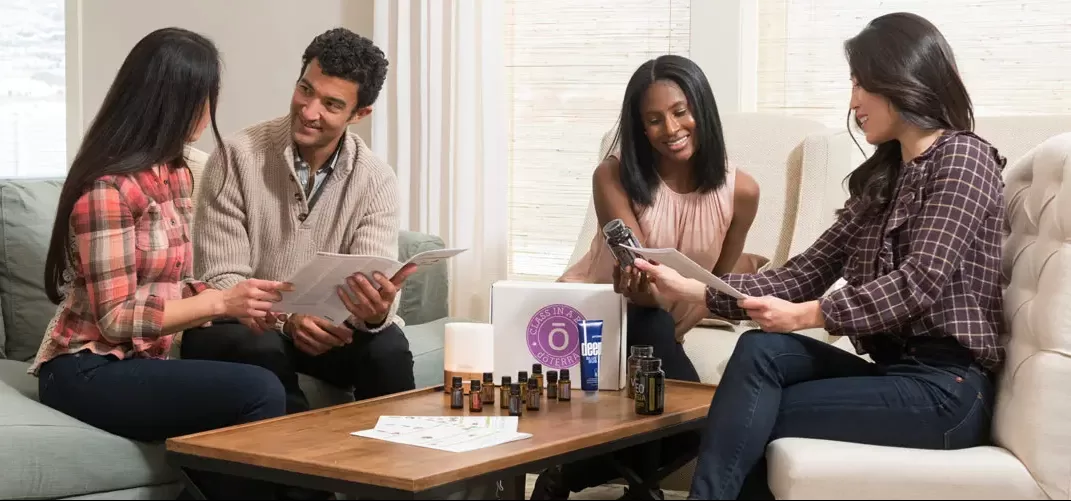Essential Oils for Beginners
Learn why millions of families around the world are using essential oils for their health & wellness.
Why is everyone turning to essential oils?
If you’re like most people, someone you know has starting using essential oils to support their health.
Although it might seem like a new fad, essential oils are not new. They have been around for centuries. Essential oils have been used for their medicinal benefits throughout history.
Families around the world are using essential oils on a daily basis for everything from reducing stress and anxious feelings to supporting respiratory health and clear breathing. They can ease digestive concerns and support the immune system, and help the body keep inflammation at healthy levels.
We can use essential oils in so many ways. Have a wellness goal? Chances are essential oils can help, and provide you with a way to naturally support your family’s health, affordably, at home.
Essential Oils 101
Want to understand what essential oils are and how to use them, but would like the quick & simple version?
You’ve come to the right place. We are here to help you find the solutions you are searching for and make it easy to get started.
Essential oils are simple and they are easy to use. Here are the basics:
What are essential oils?
Essential oils are the natural aromatic compounds found in plants. They come from various parts of the plant, such as the roots, stems, seeds, flowers and bark. They are concentrated, highly potent chemical compounds.
What is their purpose?
Essential oils give a plant its scent, and act to protect the plant from bacteria, fungus and other diseases. They slow decay and help the plants thrive in their environment, helping the plant to grow, evolve and adapt to its surroundings.
We can benefit from these same protective properties when we use pure, therapeutic grade oils.
How are essential oils obtained?
Most essential oils are steam distilled from the various parts of the plant. Distilling is quite an art and science. It’s very important to distill the oils correctly; if the temperature is too high or too low, it can lower the quality of the oil, and therefore, impact your experience and results. Some essential oils, particularly citrus oils like lemon, lime and grapefruit, are cold pressed from the rind of the fruit. You can learn more about the distillation process HERE, if it is of interest to you.
Essential oils are both concentrated and powerful. One or two drops is usually considered a “dose” which makes oils very cost effective. Some oils, like peppermint, are 50 to 70 times more powerful than their dried herbs counterpart.
Why do I want to use essential oils?
Essential oils offers excellent support for our whole body. Just a few examples of what various oils can do for us:
- Some oils have the ability to support our immune system
- Oils can provide anti-oxidant protection, as well as help detoxify your body
- Many oils help to support a healthy inflammatory response
- Certain oils are helpful in keeping your airways open, thus promoting clear breathing
- Some can help us stay focused on tasks by aiding in concentration
- Essential oils can support digestive health, soothe muscle and joint pain, and ease tension
- Many oils have wonderful calming properties, with the ability to lift our mood and spirits
Our lives are busy, medical costs are way up, and there are so many better ways to spend our time and money than on a trip to the clinic, especially if it’s something you can deal with at home, utilizing essential oils. Not only that, families are becoming increasingly aware of the high levels of toxins in everyday products, and are looking for safer solutions for their family.
Why spray a toxic chemical concoction on your children’s skin, when using a blend of essential oils can more effectively, and far more safely, keep mosquitos away? Instead you can choose to use safe, natural, and affordable therapeutic grade essential oils to reach your wellness goals.
How do I use essential oils?
Aromatically
Aromatic use of oils focuses on breathing in the aroma and chemical compounds that make up the essential oil. It’s the fastest way to impact your mood and emotions. Simply breathe in the aroma. From there, those chemical compounds travel up the olfactory nerves and make their way to the amygdala in the brain, where the oils do their magic.
Certain essential oils can be very stimulating, while others can be calming and soothing. Diffusing oils can support our respiratory systems and can the purify air of unwanted odors.
Oil diffusers are popular because they are able to quickly spread the aroma throughout a room, thus improving the mood of everyone in the room. But you don’t need a diffuser to get the benefits of aromatic use. You can simply put a few drops in the palm of your hand, rub your hands together and then put them up to your nose and breathe in deeply. Try it with some wild orange! If you’re like most people, it will put a smile on your face.
Topically
Topical use simply involves applying the oil to various parts of the body to provide both localized benefits and systemic support. Essential oils are frequently and effectively used with massage; they absorb easily into the bloodstream where they work through the body.
Topical use often focuses on impacting the skin, muscles and joints. Lavender is great for soothing skin irritations and burns. Tea tree, with its anti-fungal properties, is excellent for dealing with skin issues – pimples and blemishes fungal issues you might experience on your feet. Marjoram can help relax tense muscles, while wintergreen and blends such as doTERRA’s Deep Blue can ease muscle or joint discomfort after working in the yard. (Or for my husband, a long bike ride).
Internally
There is often a lot of discussion about the safety of using oils internally. Safety of internal use is mainly of concern when you are not confident in the quality and purity of your oils. If you browse the shelves of your local health food store, you’ll find that most of the oils, if not all of them are labeled “not for internal use”. Even brands who claim their oils are 100% pure may also state their oils shouldn’t be ingested.
You need to know where your oils are coming from and what the manufacturing process is. doTERRA’s oils go through very rigorous testing to make sure they are both pure and potent, and I feel confident using their oils internally. Any suggestions I offer on this site regarding internal use are specifically with doTERRA essential oils.
There are some oils, such as wintergreen, cypress and spikenard, that shouldn’t be ingested even when totally pure. You’ll want to check the supplement facts on the label of your oil to make sure it’s safe for internal use. If it’s missing that supplement facts label, or says its not for internal use, don’t ingest it.
Internal use of oils is a great way to support your digestive system and overall wellness. Fennel and anise are known to help reduce discomfort from excess stomach acid. Cooking with essential oils adds flavor into your recipes. A few drops of lemon or grapefruit to your water (always use a glass or stainless steel container!) tastes great and can help your body in its efforts to remove toxins.
Use Pure, Potent and Medicinal Grade Oils
Whichever method you choose to use your oils (and I use them all on a daily basis), just be sure you are using oils from a source you trust, who can provide the data on sourcing and testing.
If you are using doTERRA oils, you can get the testing details on any bottle of oil by going to SourceToYou.com and entering the batch number found on the bottom of the bottle!
Let’s Talk About Dilution
If you’ve used essential oils or learned much about them, you probably know that it’s a good idea to dilute your oils with a carrier.
Some oils can be applied “neat” straight from the bottle, however, most should be diluted with a carrier oil before applying. This is particularly true of “warm” oils, such as cinnamon, thyme, oregano, clove and cassia. Even oils commonly used neat by adults should still be diluted when used with children or people with particularly sensitive skin, and when covering a large area on the body.
Why Quality Matters
Do you know where your oils come from? Have they undergone testing to ensure they are free of fillers, pesticides and adulterations?
So many factors can contribute to whether the essential oils you are using will be both safe and effective. Here are a list of some of the most important ones.




